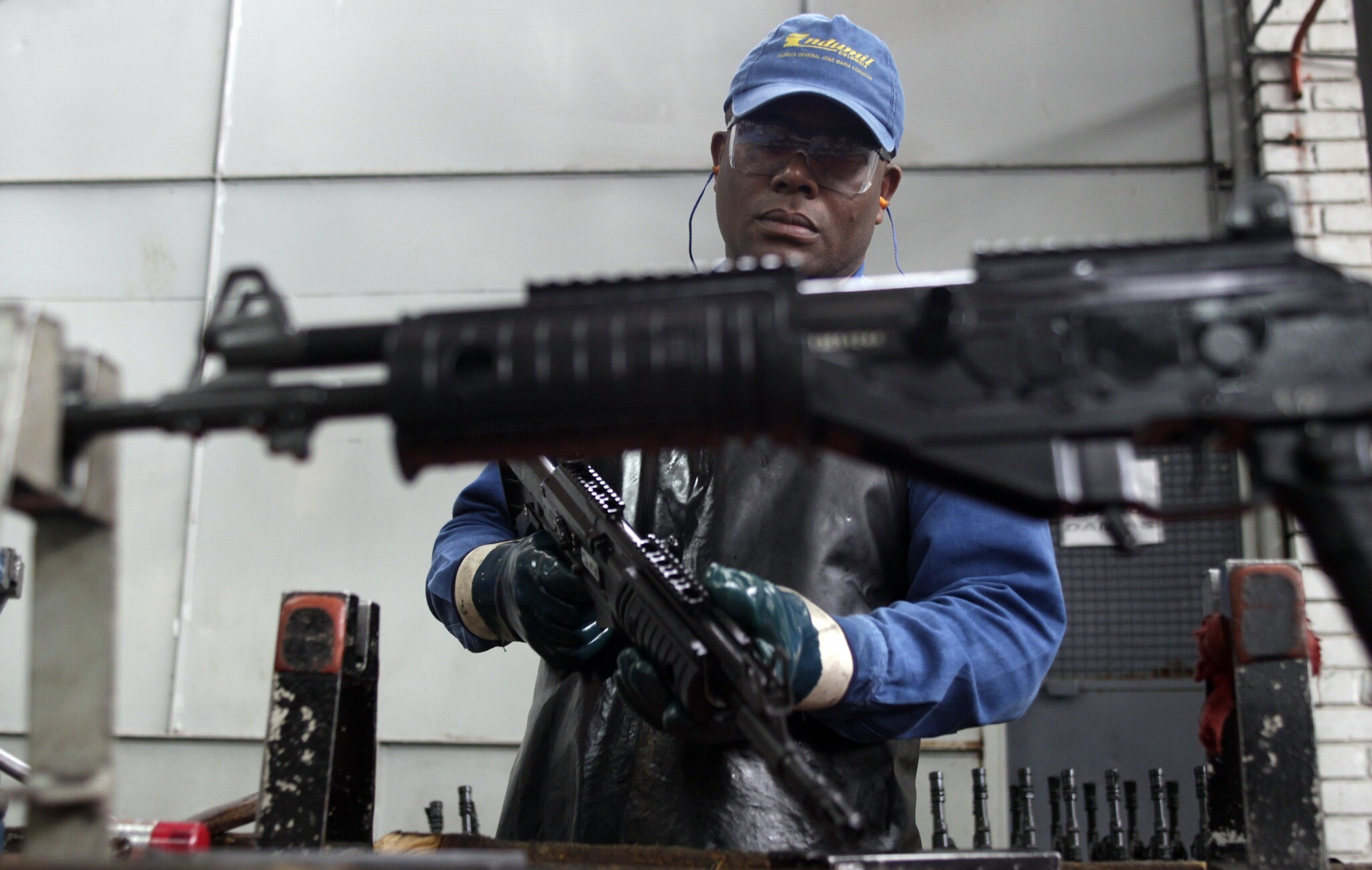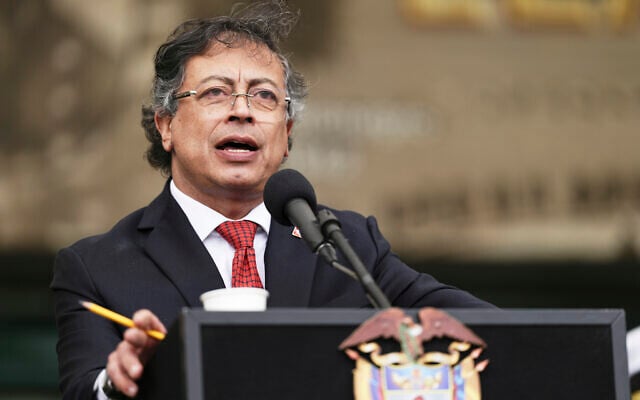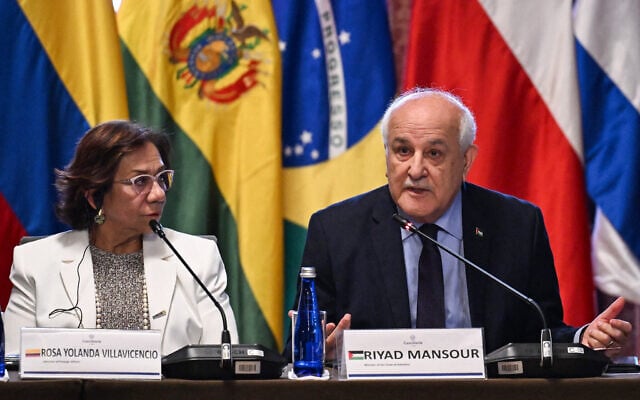


Colombian officials said Monday that the country had produced its first combat rifle, aiming to replace arms that were once supplied by its former military ally Israel.
The announcement stems from an escalating feud between the two countries that has also roped in the United States, and comes as several countries have curtailed or canceled weapons deals with Israel amid the Gaza war.
Gustavo Petro, Colombia’s left-wing president, severed ties with Israel in 2024 to protest the war against Hamas in the Gaza Strip. Colombia has accused Israel of genocide, and the US revoked Petro’s visa last week after he participated in an anti-Israel rally in New York City, where he encouraged his citizens to fight alongside Palestinians in Gaza.
Now, Colombia is manufacturing arms that, for decades, it had sourced from Israel. State-owned weapons manufacturer Indumil produced the combat rifles — the first to be made domestically — to replace the Galil, a gun that since the 1990s had been assembled in the country using Israeli components.
The goal is to manufacture 400,000 lighter and cheaper rifles in five years and “gradually replace current weapons in the armed forces,” Indumil manager and retired Colonel Javier Carmago told AFP.
The new weapons, made of steel and polymer, are 15 to 25 percent lighter. But experts have voiced doubt that the Latin American country can get up to production capacity without paying a steep price. The announcement comes after Colombia said in April that it would replace an aging fleet of Israeli fighter jets with Swedish planes.

Petro also halted purchases of arms from the US, after its President Donald Trump removed Colombia from his list of allies in the fight against drugs. For the past three decades, Colombia’s leaders have taken up arms against guerrillas and drug traffickers involved in cocaine and illegal gold operations.
Jerusalem and Bogota had longstanding close relations, but Colombia followed Bolivia in May 2024 in ending its ties with Israel. Petro, who took office in 2022, had for months assailed Israel’s war on Hamas and likened it to the Holocaust, drawing accusations of antisemitism from Jerusalem.
Bogota also supports South Africa’s case in the International Court of Justice accusing Israel of genocide in Gaza — a charge Israel has adamantly rejected, saying it makes efforts to avoid civilian casualties.
Petro has previously posed with a map of a Palestinian state in Israel’s place. He has also called on Hamas to release hostage Elkana Bohbot, who holds Colombian citizenship, “as a tribute to Colombia and its solidarity with the Palestinian people.”

At an anti-Israel rally in New York last week, Petro, wearing a keffiyeh, said he would open enlistment for Colombians to fight alongside the Palestinians in Gaza and called on other nations to join.
On his social media account, Petro shared a video of himself speaking Spanish to a large crowd through a megaphone on Friday, with his translator then relaying his comments, calling on “nations of the world” to contribute soldiers for an army “larger than that of the United States.”
“I am going back to Colombia to open enlistment for Colombians to serve to fight in Gaza, and if I need to go and join to serve, I will. But this needs to happen among other nations,” he said.
Amid recent US strikes on alleged Latin American drug traffickers, Petro also urged US troops to refuse to carry out Trump’s orders.
The statements led the US to revoke his visa. Petro, who was in New York to address the UN General Assembly, had “stood on a NYC street and urged US soldiers to disobey orders and incite violence,” the US State Department said in a post on X. “We will revoke Petro’s visa due to his reckless and incendiary actions.”

In protest of that decision, Colombian Foreign Minister Rosa Villavicencio announced on Monday that she had “renounced” her own US visa.
Colombia’s Foreign Ministry said in a statement that it was not interested in “diplomatic visas that limit opinions” or curtail the nation’s “sovereignty.”
Later on Monday, Colombian Finance Minister Germán Ávila wrote in an X message that he would stop using his visa in “solidarity” with Petro, and because of the “aggression” he was subjected to by the United States. “To work for our people, we do not need visas,” Ávila wrote.
Cecilia Lazzaro Blasbalg contributed to this report.

